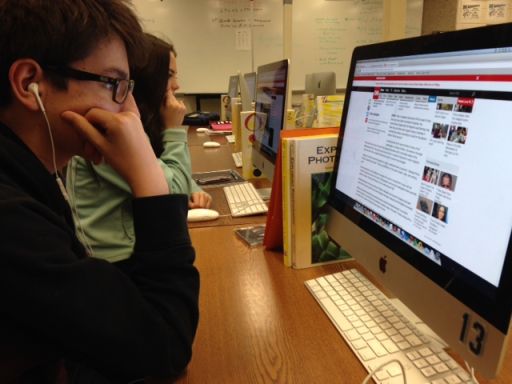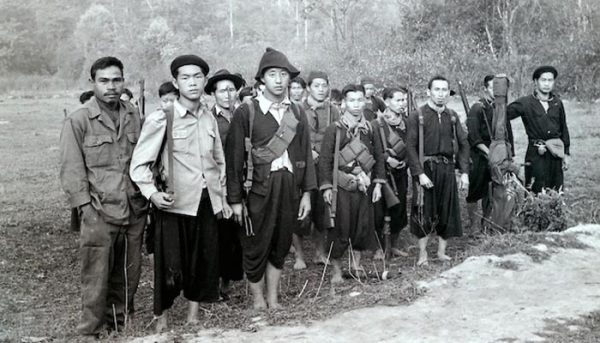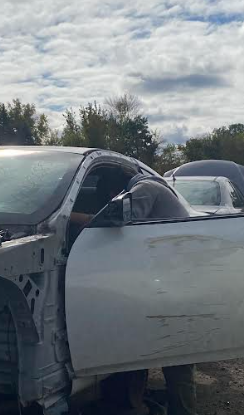Are Blaine Students Informed about the News?
TV news, newspapers, or online articles are all ways to be informed on current events, but are they the only ways?

Blaine students reading news articles online
April 14, 2015
According to a study conducted at John F. Kennedy School of Government at Harvard; out of a selection of 1,800 Americans most young adults do not follow the news closely. It’s not an uncommon assumption that most high school students don’t watch the news or read the newspaper. So how are they informed about important world news?
A lot of classes at Blaine High School use current events in its curriculum. For example teachers can integrate them in various projects, essays, and homework assignments. In the CEMS program students take a Biotechnology course in which they learn of living organisms and how to utilize them to develop innovative technology. One lesson involved the study of water and some issues like the California water crisis, or food insecurities around the world. After researching on a country, the students had to come up with a way to help solve the issue. I asked Mr. Roirdan, the teacher of this course about how many projects the students do that involve world issues and he responded with “A lot. Biotech in general is looked at trying to solve issues from things like agriculture; how to feed a growing population sustainably. Also water issues like the water crisis in California is something that we looked at in Trimester 1; looking at water resources globally and how those are allocated”.
The AP world history teacher Mrs. Suter also uses world news in her teaching as a way to “compare or contrast” current events to past occurrences. She said: “For me, I just try to make analogies of current things that are happening to what we are studying”. So even though some students may not be watching the news everyday; they are still absorbing a lot of important world information while in the classroom. There are also things like CNN student news that some students may utilize as a way to quickly get their information. Other things like social media include linked articles in which someone can click on if it grabs their attention.
So is the assumption that students are not informed a correct assumption? There are still students who watch the news a considerate amount and if they do not watch the news daily they are still getting information from different sources in a variety of different ways.











